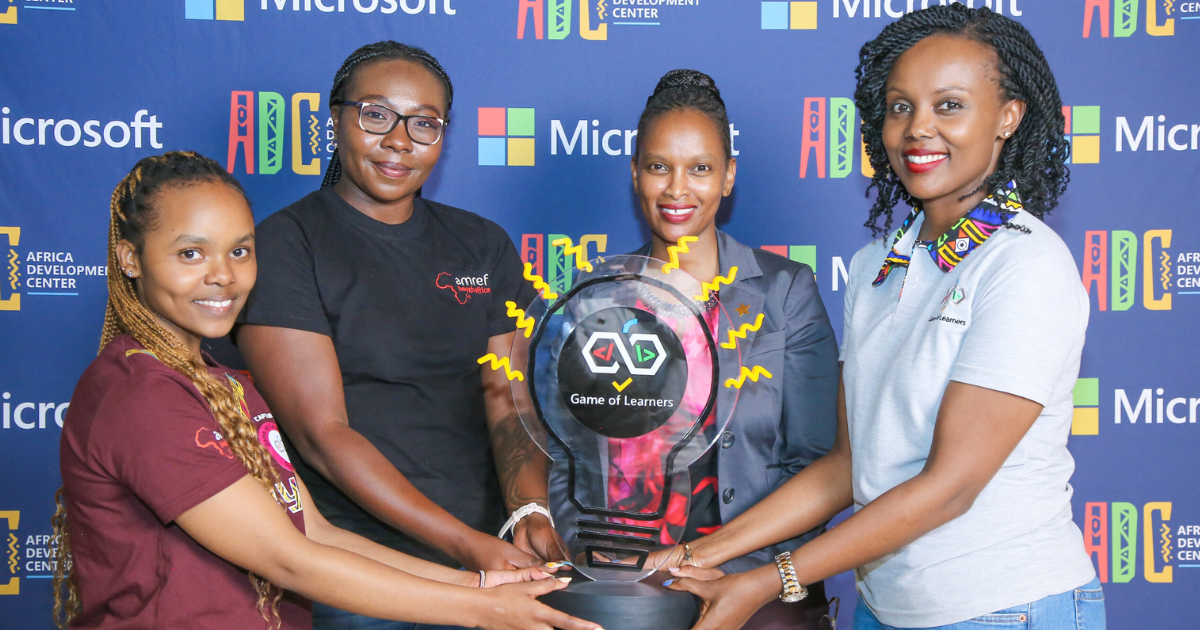Medical Translation App Wins the 4th Season of the Game of Learners

A team of four university students has won the fourth edition of the Game of Learners (GOL) competition by developing an innovative medical language translation app. The solution, named ‘Jambo Care,’ can translate the local dialect into English or Kiswahili, enabling doctors to diagnose patients’ symptoms remotely more efficiently. Also, the team, known as Team Ruby, beat 16 other teams from various African universities to win the season, which focused on developing technological solutions to address Africa’s health challenges. More than 80 students from 11 African countries participated in the five-week hackathon, which had an equal balance of men and women.
Furthermore, the Microsoft African Development Centre (ADC) partnered with Population Services International (PSI) and AMREF Health Africa to organise the competition, which aimed to make primary healthcare more accessible to people. Healthcare systems in Africa face numerous challenges, including inadequate infrastructure, a shortage of healthcare personnel, limited access to essential medicines, low health literacy, and poor health-seeking behavior. However, increasing access to affordable digital technology provides an opportunity to address these challenges.
Lucy Alphonce, the Team Ruby captain, explained that their translator aims to bridge the communication gap between healthcare providers and patients who do not have a common language. This would ensure effective healthcare delivery. The Game of Learners programme aimed to explore how advances in digital technology can improve consumers’ access to health information, products, and services. Throughout the season, the three partners provided participants with tailored training on health system challenges, digital health development principles, and how to use insights to advance user-centered designs.
What You Should Know About the Game of Learners
Additionally, in five groups, participants had five weeks to develop solutions that included the most recent advancements in digital health technology, such as Artificial Intelligence, Telemedicine, and Chatbot Solutions.
Ruth Ferland, the Regional Head of Student & Community Engagements at Microsoft ADC, said that the competition challenged participants to identify a unique challenge in the healthcare sector and design a tech-based solution. She hopes that the competition will provide a creative solution to a long-standing healthcare challenge and help participants learn more about technology and how to use it for good.
Also, as part of the next steps, PSI will provide some students with internship opportunities to progress their knowledge in digital health. AMREF Health will offer three months of technical support to the best two teams to advance their innovations. Ferland encouraged students aiming to take their projects to the next level to resubmit them in the Microsoft Imagine Cup, the premier global student technology competition that offers students the opportunity to develop inspiring leading-edge technology solutions in one of four competition categories—Earth, Education, Health, and Lifestyle.
Wycliffe Waweru, PSI’s Deputy Director of Digital Health & Monitoring, said that they are looking for innovation hubs that can host some of the solutions that the young people have developed and see if they can be brought to market. For individuals interested in pursuing a career in digital health, PSI will offer internships to work with their teams for practical and hands-on interaction with other digital health solutions. Kitawa Wemo, the Innovations Lead at AMREF Health, said that their digital and data strategy is focused on supporting young people building digital technologies for health. She expressed her excitement about collaborating with Microsoft ADC and PSI on this noble initiative, which aims to integrate global health and digital skills.
